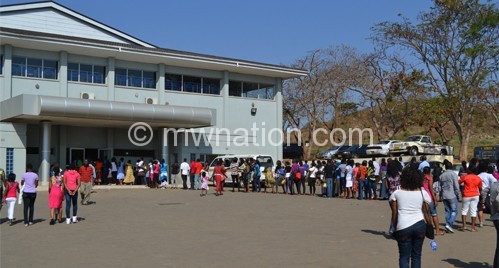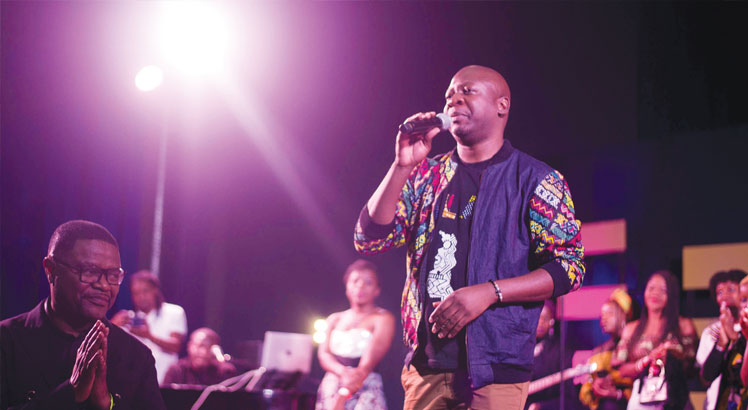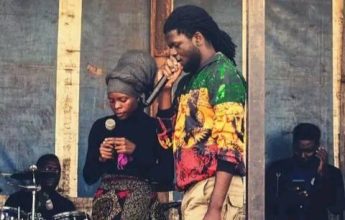Despite battered voice, poets find their ground
Arts festivals have recently been the order of various venues across the country. For instance, the nation has witnessed music festivals in venues ranging from Likoma, Blantyre and Mangochi.
But what is fascinating is how poetry has occupied a special place within such festivals.
And outside the arts festivals, capacity crowds at poetry events countrywide, added to the fascinating poetry programmes on various radio stations such as Chanel for All Nations, Matindi FM, Joy FM and Galaxy FM, only serve to confirm spoken word poetry as the new form of entertainment.
 However, coming from a country that has birthed world renowned poets such as Jack Mapanje, Mpalive-Hangson Msiska and Lupenga Mphande, the young poets still have a lot of work on their hands.
However, coming from a country that has birthed world renowned poets such as Jack Mapanje, Mpalive-Hangson Msiska and Lupenga Mphande, the young poets still have a lot of work on their hands.
More so when one considers that local spoken word poetry borders more on comedy than it does on the aesthetic value of the poem.
Such criticism might sound harsh, but when one looks at Joseph Madzedze’s Mayeso Akusitikali and Humble C’s Koma Kudachema, laughter, other than art, seems to be the prevalent emotion.
Which is why art pundits have noted that patrons to the poetry show are fascinated by the comedy than by the poetry.
Regardless, spoken word poetry has become so popular that Matindi Radio recently pumped in K1 million for a national poetry recital festival which took place on August 3 at Robin’s Park in Blantyre.
The poetry galore, which was dubbed ‘Bwalo la Alakatuli’ hosted more than 15 spoken word vernacular poets from across the country.
And not wanting to be left out, Channel for All Nations also organised a similar event which they called 2014 Mlakatuli Festival, where local poets such as Felix Njonjonjo, Mollen Nazombe, Nyamalikiti Nthiwatiwa, Sylvester Kalizan’goma and Hudson Chasowa took turns to wow the patrons with their skills.
And Mzuzu was on the poetry spotlight when poets converged at Katoto Secondary School Hall two weeks ago.
And not to forget that Mzuzu University (Mzuni), in partnership with Birkibeck College of the University of London, organises a writer’s conference every two years.
The gathering brings together overseas and local scholars to discuss Malawian literature.
And it was at this year’s event that Malawian spoken word poetry was put on the spotlight.
During this year’s event, which was held from August 4 to 6, scholars shared their diverse views on ‘Orature and its place in Malawian Literature.’
Among other issues discussed, scholars agreed that oral literature is still thriving in the country despite technological advancements.
Scholar Nicholas Magaga Msowoya, for instance, noted in his presentation ‘Locating Oral Tradition in the New Media’ that oral literature is making headway in the social networks such as Facebook, WhatsApp and Twitter.
He said the use of video clips has not negatively impacted on literature, but rather it is a manifestation that oral literature is taking a new shape.
In his presentation ‘Contemporary Vernacular Oral Poetry from Malawi: A Search for New Metaphor’, Chancellor College literature lecturer Emmanuel Ngwira agreed with Msowoya that the popularised vernacular poems in the country are genuine pieces of literature which, he said, should not be mistaken as mere comedy.
He said these follow principles or characteristics of literature in that they are creative and that they are shared orally, even to illiterate communities.
And taking his turn, poet Qabaniso ‘Q’ Malewezi, who refreshed participants with his recital, gave his thoughts on the rise of poetry.
“Of course, poetry is growing in Malawi, but as poets we still need to harness its potential. We need to put poetry into better use. Note that we are poets because we have issues,” said Q. “And we need to bring the issues up through performances, not just reciting.”
But man of word and spoken word veteran Benedicto Wokomaatani Malunga notes that Malawi’s poetry leaves a lot to be desired.
He said the current crop of poets lack skills that can make them compete internationally and be recognised in both academic and social spheres.
“My comment to some individuals can be seen as if I am jealousy of their work, but the truth is that uprising poets are messing things up. It is just few who are coming up with well done pieces. What the majority are producing are not poems but trash, their work does not reflect what poetry should be, most of their work lacks basic devices of the genre,” said Malunga.
He said the current generation of poets rushes into publishing before they analyse what the poem should encompass. He said due to this recklessness, they end up coming up with a parole full of jokes thinking that it is a poem.
“A poem should be concise, and able to communicate a long story in a condensed fashion by using best language that expresses your thoughts and ideas in a manner that paint a picture and clear music for the ear. But you find that the current generation of poets does not produce that. Most of their poems are more of comedy; as their message is full of jokes. They forget that if people are laughing at their recitals, it does not necessarily mean that the poem is good, but they have simply changed the poem to comedy,” said Malunga.
He said, while the nation is experiencing the rise of poetry, the focus should also be on quality, saying it is good to cerebrate pieces that are of good quality.
Malunga advises the current generation of poets to first research and read what other poets have done before they venture out to write their own poets.




